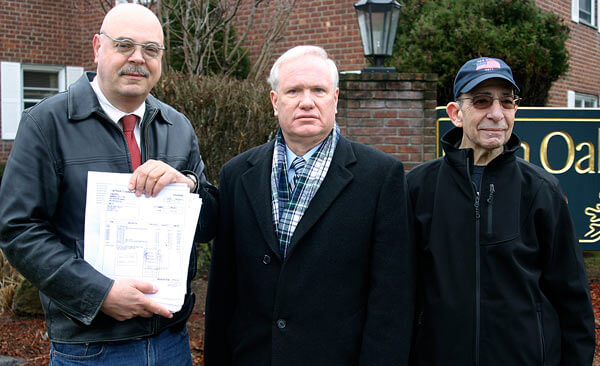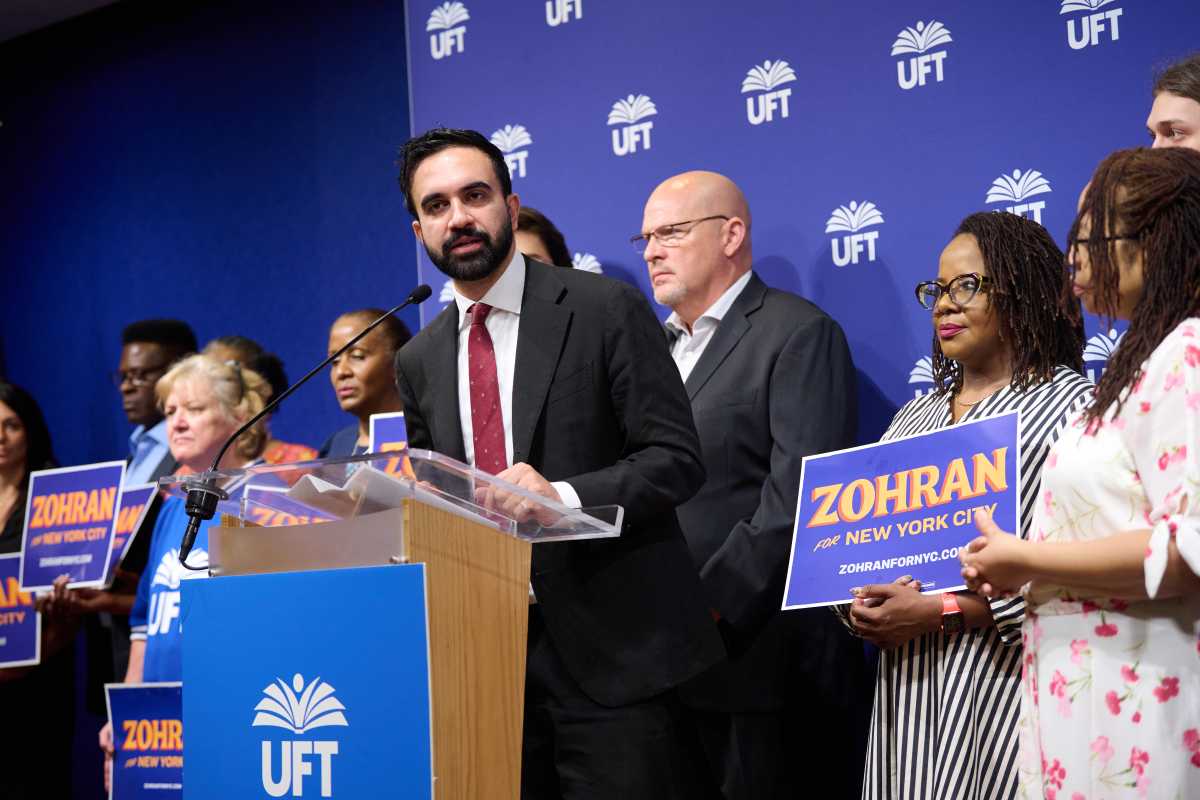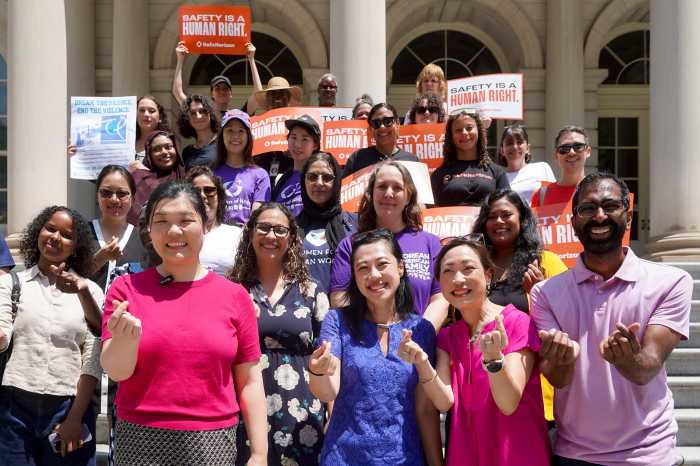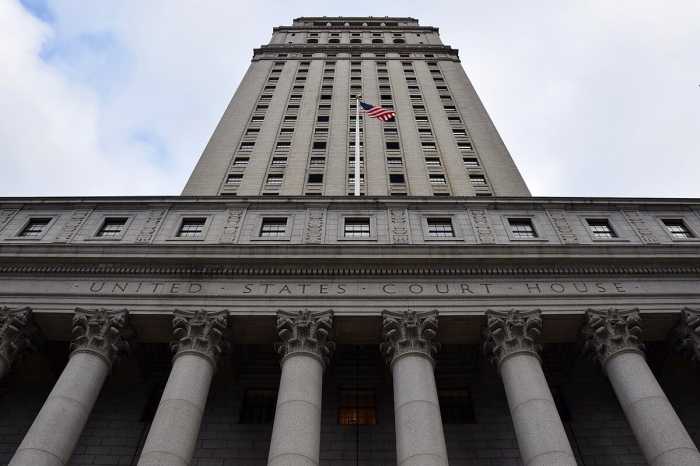By Rich Bockmann
When it comes to getting sidewalks repaired that are damaged by curbside trees, co-op and condominium owners claim the city Parks Department gives them the short end of the stick.
Under the Tree & Sidewalks repair program, one-, two- and three-family residential property owners can make a request to have the department inspect sidewalks damaged by the roots of city-owned trees between the sidewalk and the curb.
Co-op and condominium owners, however, are responsible for making such repairs themselves.
Warren Schreiber, president of the Bay Terrace co-op, said the costs of repairing a sidewalk can include hiring a contractor to repair the concrete, hiring an arborist to remedy the roots that damaged the concrete and purchasing permits to shut down the street and/or sidewalk.
“Even a small piece like this could easily run up to a couple thousand dollars,” he said Friday morning, pointing to an approximately 12-foot-long section of sidewalk in the Glen Oaks Village co-op.
Schreiber stood alongside Glen Oaks Village Co-op President Bob Friedrich and state Sen. Tony Avella (D-Bayside), who announced he had introduced legislation that would require the Parks Department to include co-ops and condos in its Trees & Sidewalks program.
“This is about fairness. The city created the problem and the city should fix the problem,” said Avella, who said the situation represented the “heart of the disparity” between the way the city treats co-ops and other residential properties.
A Parks Department representative said that since the program began in 2005, nearly $9 million has been spent fixing more than 4,200 locations in Queens, though he confirmed that the program does not apply to condos and co-ops.
Friedrich, who has been a vocal critic of the way the city Department of Finance assesses co-op and condo property values, said it was just another example of how unfairly these property owners are treated by the city.
“Co-op owners are required to pay for the repairs, but we pay the same property taxes. We should be treated the same,” he said.
He said the city, with a $50 billion budget, misplaced priorities by under-funding quality-of-life programs like sidewalk repair awhile spending money to build bicycle lanes.
Avella said that before the Parks Department program was put in place, all homeowners were responsible for repairing sidewalks damaged by curbside trees and that as a City Council member he worked on legislation to write a sidewalk-repair policy into law.
In addition to including co-ops and condos in the program, the senator’s current bill would codify such a program into city law. Avella has criticized the Parks Department and the city Department of Transportation in the past for their long backlogs for tree prunings and curb repairs, respectively.
“The city has to remember it’s responsible for its infrastructure,” he said.
Reach reporter Rich Bockmann by e-mail at rbockmann@cnglocal.com or by phone at 718-260-4574.





































